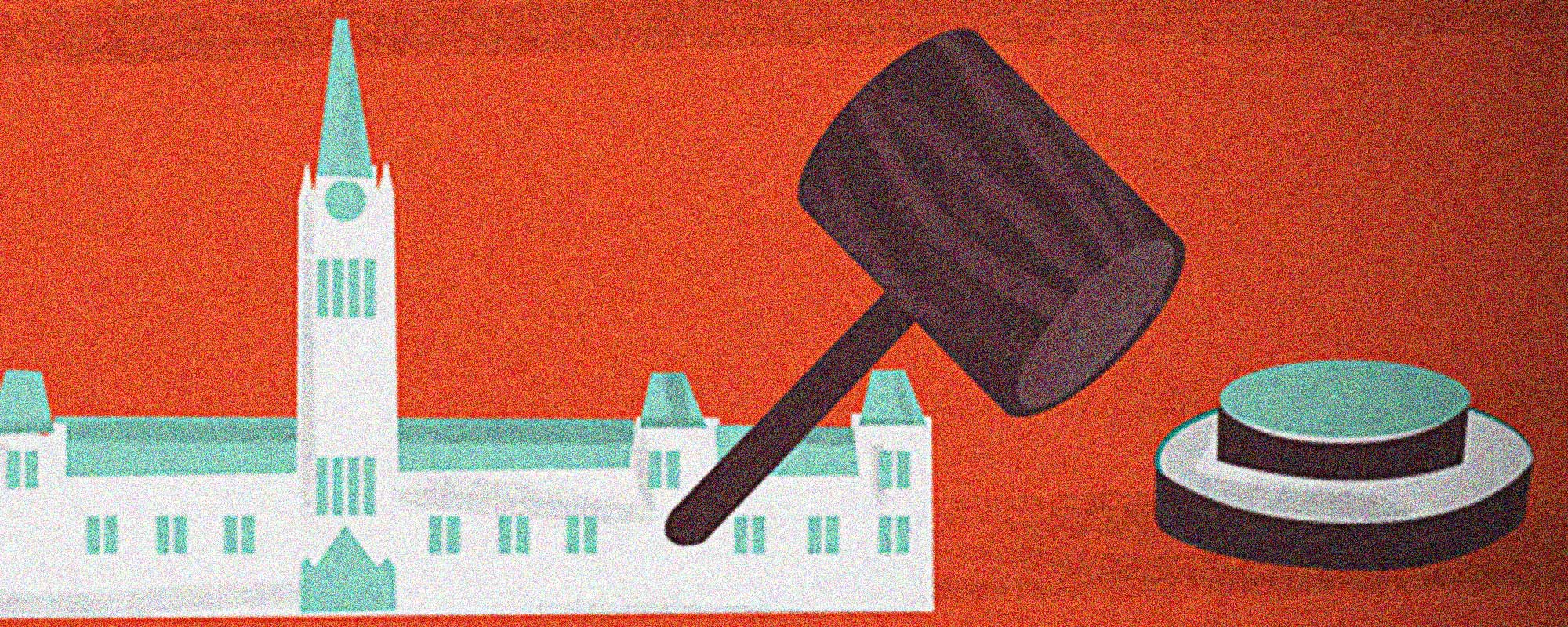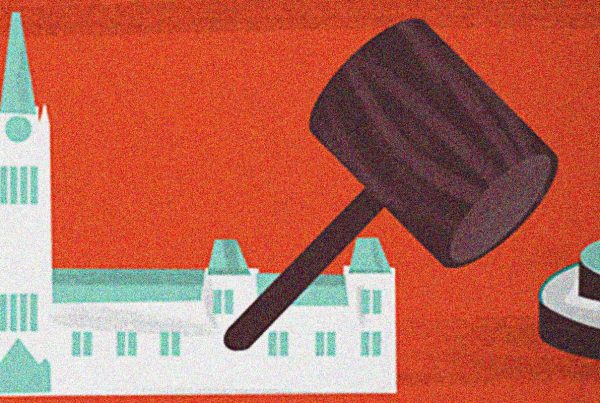Because the Learn section of TalkRights features content produced by CCLA volunteers and interviews with experts in their own words, opinions expressed here do not necessarily represent the CCLA’s own policies or positions. For official publications, key reports, position papers, legal documentation, and up-to-date news about the CCLA’s work check out the In Focus section of our website.
Where did Bill C-36 come from?
In 2013, the Supreme Court of Canada decided Canada (Attorney General) v. Bedford. In Bedford, the Court declared that the three provisions of the Criminal Code concerning activities related to prostitution were unconstitutional. Parliament was given one year to introduce new legislation regarding prostitution, and subsequently introduced Bill C-36 (the Bill). The Bill became law on December 6, 2014.
What is in the Bill?
Parliament’s concerns and objectives
The preamble of the Bill identifies the concerns Parliament has with regard to prostitution. These concerns include, but are not limited to, the exploitation and risk of violence to those who engage in prostitution, and the social harm caused by the objectification of the human body and commodification of sexual activity. The preamble also identifies that Parliament is seeking to discourage prostitution, for it has a negative effect on human dignity and equality, and a disproportionate impact on women and children.
The preamble also identifies the objectives of the Bill, which include the denunciation and prohibition of the purchase of sexual services, encouragement of those who engage in prostitution to report incidents of violence and to leave prostitution, and to protect communities from the harms associated with prostitution.
New Offences
The Bill introduces 4 offences, some of which have never appeared in Canadian law, and some of which represent modifications to the provisions of the Criminal Code that were struck down in Bedford.
Offence for purchasing sexual services, and communication for that purpose
The Bill makes it an offence to purchase sexual services, as well as any communication for that purpose. This is the first time purchasing sexual services has been made illegal in Canada.
Offence for communication for purposes of providing sexual services
The Bill makes it an offence to communicate with any person for the purposes of offering or providing sexual services in a public place, or a place in public view, that is next to a school ground, playground or daycare centre.
Offence for advertisement of sexual services
The Bill makes it an offence to advertise sexual services. There is an exemption from this offence for those advertising their own sexual services, however, this provision would affect any organization that hosts or publishes a prostitute’s advertisement. “Advertisement of sexual services” includes any material including photos, films, video, audio or other recordings, a visual representation or any written material used to advertise sexual services.
Offence for knowingly receiving a material benefit from sexual services
The Bill makes it an offence to receive a financial or other material benefit, knowing that it is obtained by or derived directly or indirectly from prostitution.
There are four exceptions to this offence, including where the person receives the benefit in the context of a legitimate living arrangement with the prostitute, as a result of a moral or legal obligation of the prostitute, or as payment for a service or good that they offer to the prostitute. This means that individuals such as spouses or bodyguards of a prostitute would be exempt from the offence.
These exceptions will not obtain where the person receiving the benefit used or threatened violence, intimidation or coercion, abused a position of trust, or provided a drug, alcohol or other intoxicating substances to the prostitute. Most notably, the exceptions will not apply to a person who derived a material benefit in the context of a commercial enterprise that offers sexual services for money.
Definitions
The Bill also amends the definition of “common bawdy-house,” to remove the reference to prostitution. With this amendment, prostitution indoors is no longer an offence, unless the activities occurring within the house amount to acts of indecency.
ISSUES
Civil Liberties Issues Arising from Bill C-36
The Supreme Court of Canada’s decision in Bedford
In Bedford, the Supreme Court of Canada declared that prostitution, or the selling of sexual services, is still legal. The Court found that the provisions that criminalized certain activities relating to prostitution – the offences of keeping a common bawdy-house, living on the avails of prostitution, and communication in public for the purposes of prostitution – were unconstitutional. The Court found that these offences violated Section 7 of the Canadian Charter of Rights and Freedoms, which protects the right to security of the person, as they prevented prostitutes engaging in the legal activity of prostitution from taking steps to protect themselves from the risks characteristic of that activity. Many of the issues generated by the provisions that were struck down in Bedford are still present in Bill C-36, and some of the new provisions in the Bill generate additional civil liberties issues.
Offence for purchasing sexual services, and communication for that purpose
The offence for purchasing sexual service is new to the Bill and was not addressed in the Bedford case. However, prohibiting the purchase of sex and communication in public regarding that purchase may endanger the security of prostitutes, as those seeking to purchase sexual services may be motivated to meet in more secluded areas to avoid criminal sanction. This provision has the potential to jeopardize the safety of prostitutes, and may violate section 7 of the Charter.
Offence for communication for purposes of providing sexual services
In Bedford, the Court declared the total ban on communication in public for the purposes of providing sexual services made it more difficult for prostitutes to screen their clients, which jeopardized their safety. As the Court stated in Bedford, face-to-face communication is an essential tool for protecting prostitutes, as it allows them to screen clients for things such as intoxication and predisposition to violence, and enables them to set the terms for safe sexual practices such as the use of condoms or safe houses. The offence in Bill C-36, which makes it illegal to communicate for the purposes of selling sexual services in or next to a school ground, playground or daycare centre, still generates these safety concerns, even if it is to a lesser degree. This offence may also violate section 2(b) of the Charter, which protects freedom of expression.
Offence for advertisement of sexual services
As stated above, prostitutes are exempt from the prohibition on advertising for the purposes of offering or providing sexual services for consideration. However, this offence makes it more difficult for prostitutes advertise their own sexual services, as it would prohibit them from posting advertisements on the internet, or in print publications, as the third parties responsible for hosting or publishing the advertisement would open themselves up to criminal sanction. This offence would make it nearly impossible for prostitutes to safely generate business, as prostitutes would have to solicit their business on the street, and as already discussed, such public negotiations already endanger prostitutes. This offence might also amount to an infringement of prostitutes’ freedom of expression.
Offence for knowingly obtaining a material benefit from sexual services
In Bedford, the Court found the provision criminalizing living off the avails of prostitution to be invalid, as the provision did not distinguish between those who exploit prostitutes and those who help to ensure the safety of prostitutes, such as drivers, managers, bodyguards, nurses or assistants. The same concerns are present in the new material benefit regime, as the exceptions from the offence do not apply to people receiving the benefit in the context of a commercial enterprise. This would make it more difficult for prostitutes to arrange the provision of their services in an organized manner, and denying prostitutes safeguards in the form of individuals who see to their well being has the potential to jeopardize their security in an unconstitutional way.
Overall, Parliament has introduced legislation that seeks to eliminate and discourage prostitution, rather than create safer conditions for prostitutes who engage in the legal activity of selling sexual services, as was demanded in Bedford. It remains to be seen if and when a constitutional challenge will be brought against these provisions of Bill C-36.
About the Canadian Civil Liberties Association
The CCLA is an independent, non-profit organization with supporters from across the country. Founded in 1964, the CCLA is a national human rights organization committed to defending the rights, dignity, safety, and freedoms of all people in Canada.
For the Media
For further comments, please contact us at media@ccla.org.




